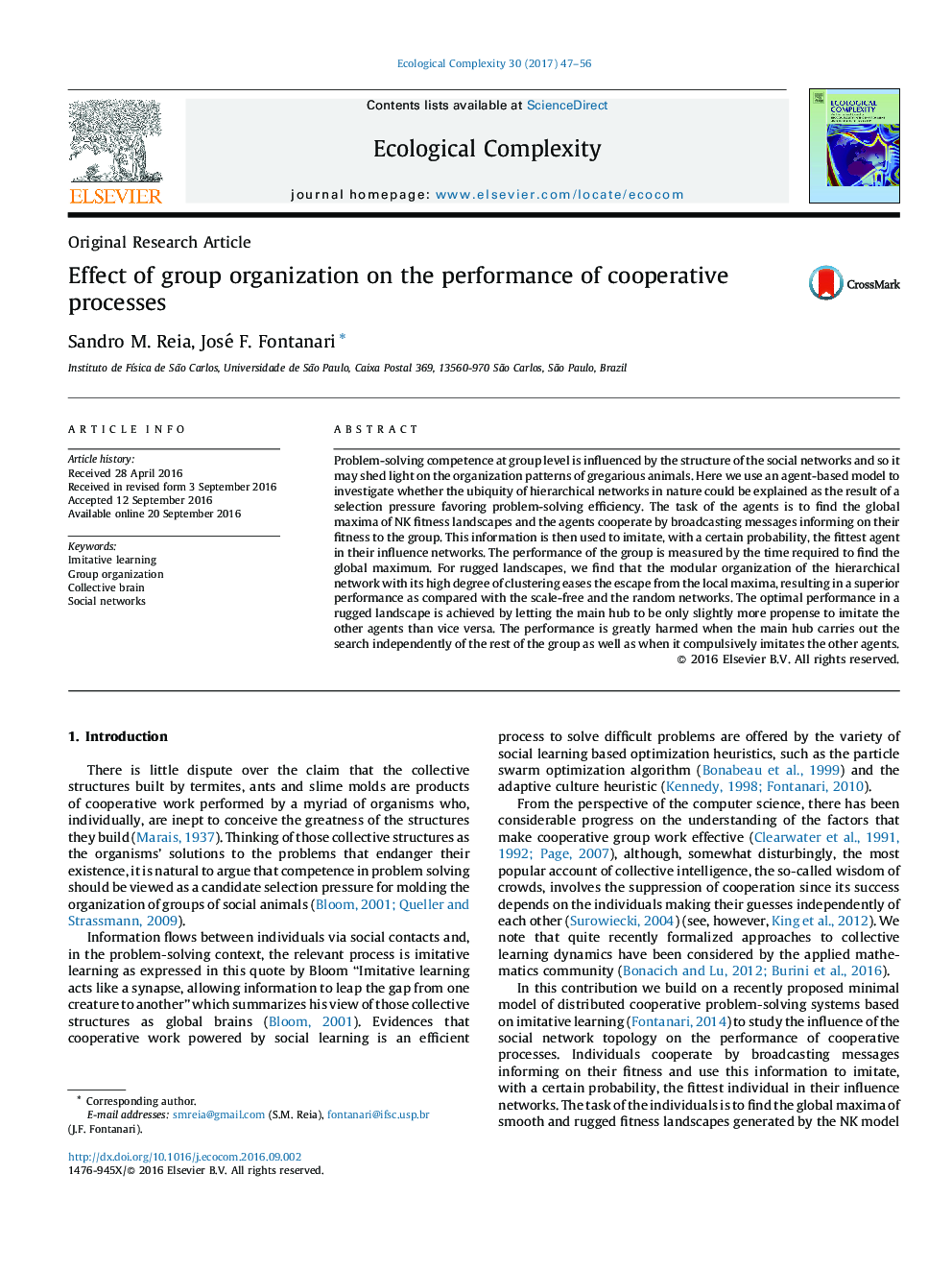| کد مقاله | کد نشریه | سال انتشار | مقاله انگلیسی | نسخه تمام متن |
|---|---|---|---|---|
| 5741244 | 1617084 | 2017 | 10 صفحه PDF | دانلود رایگان |
- Problem-solving efficiency acts as a selection pressure on group organization.
- Imitative learning allows information to circulate among group members.
- Hierarchically organized groups perform better than other group conformations.
- Agents at the hierarchy top must imitate more frequently than their subordinates.
Problem-solving competence at group level is influenced by the structure of the social networks and so it may shed light on the organization patterns of gregarious animals. Here we use an agent-based model to investigate whether the ubiquity of hierarchical networks in nature could be explained as the result of a selection pressure favoring problem-solving efficiency. The task of the agents is to find the global maxima of NK fitness landscapes and the agents cooperate by broadcasting messages informing on their fitness to the group. This information is then used to imitate, with a certain probability, the fittest agent in their influence networks. The performance of the group is measured by the time required to find the global maximum. For rugged landscapes, we find that the modular organization of the hierarchical network with its high degree of clustering eases the escape from the local maxima, resulting in a superior performance as compared with the scale-free and the random networks. The optimal performance in a rugged landscape is achieved by letting the main hub to be only slightly more propense to imitate the other agents than vice versa. The performance is greatly harmed when the main hub carries out the search independently of the rest of the group as well as when it compulsively imitates the other agents.
Journal: Ecological Complexity - Volume 30, June 2017, Pages 47-56
